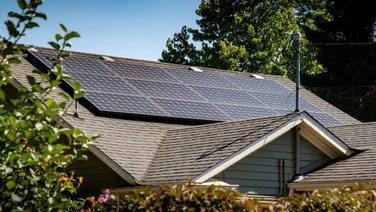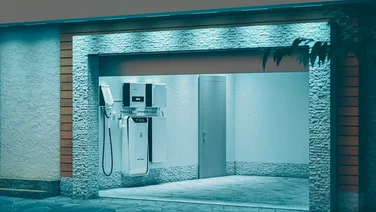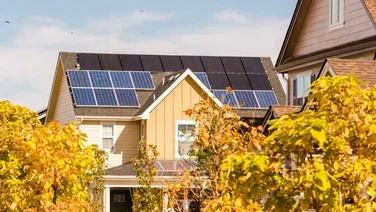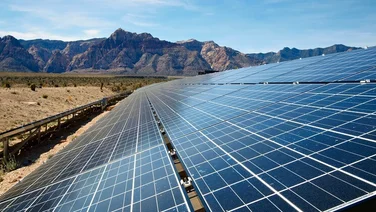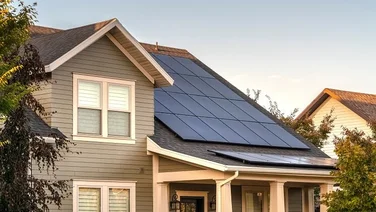✔ Solar panels will typically cut your home’s electricity bills by 51%
✔ The average household in Austin can break even in 10.2 years
✔ You can sell your excess solar energy to several energy companies
Solar panels can save households in Texas hundreds of dollars every year – and thousands in tax rebates and exemptions.
Installing these renewable systems on your roof can also make you less dependent on the grid, cut your carbon footprint, and provide you with free electricity all year round.
Here’s everything you need to know about this increasingly popular way of cutting your energy bills.

How much do solar panels cost in Texas?
Solar panels in Texas currently cost $2.72 per watt.
That means you’ll usually shell out $1,360 for a 500-watt solar panel.
Considering the average household needs a 10.5 kWp* installation, you’ll typically end up paying $28,560 for a solar panel system.
If this amount seems extremely reasonable to you, there’s a reason: solar prices in Texas have fallen by 53% over the past 10 years, according to the Solar Energy Industries Association.
For that price, you’ll usually get around 21 solar panels on your roof, which will produce 13,519 kWh of electricity per year, on average – more than the 13,128 kWh that the average Texas home uses.
* kWp stands for ‘kilowatt peak’. It’s the amount of power that a solar panel will produce per hour in perfect conditions.
kWh means ‘kilowatt hour’, and is a unit of measurement used to explain how much energy your solar panels generate and your home consumes.
How much money will solar panels save you in Texas?
The average household can save $958 per year on its electricity bills by getting solar panels.
That’s just by using the energy your solar installation produces – before you even consider the thousands of dollars of government grants, tax rebates and exemptions, and buyback schemes we go into further down the page.
The massive amount of sunshine in Texas makes solar panels a great investment, and is probably why the state is constantly competing with California for the highest solar capacity in the country.
Texans also use electricity to power their home heating at a 50% higher rate than the average American, so it makes sense to use a fuel that’s free after the upfront cost.
What’s the return on investment on solar panels in Texas?
You can cut your electricity bills by 51% by getting solar panels in Texas.
Without any additional money from the various grants available to Texans, this will mean breaking even on your solar panels after 29.8 years.
This would probably still leave you with a good few years of profiting from free solar power – but you should absolutely be able to access grants that will raise your savings dramatically.
With the federal government’s grants alone, you should be able to lower the cost of your installation by 30%, which reduces the break-even point to 20.9 years.
And depending on where you live, you may be able to take advantage of generous local grants. For instance, the average customer of Austin Energy who gets solar panels should be able to break even in 10.2 years.
There are even more savings to be had in the west of the state. The closer you are to New Mexico, the more solar electricity you can generate – and the better your returns will be.

Are there any government grants for solar panels in Texas?
There are plenty of government grants for solar panels in Texas, from federal to city level – and you should absolutely take advantage of as many as you can.
Local government grants
Firstly, the state has plenty of local government grants.
The Solar Energy System Property Tax Exemption can be accessed by any homeowner in Texas with a solar installation.
You can use it to avoid paying property tax, up to the value that the system adds to your home.
Homeowners in Austin can get a $2,500 tax rebate from Austin Energy, and sell back any excess solar energy for 9.7¢ per kWh. All you need to do is go on a short solar education course, then get a certified rooftop solar installation.
If you live in Denton, you can access the city’s Solar Installation Incentive, while Oncor also offers incentives for residents looking to buy solar.
Numerous companies will also buy the excess solar energy your panels generate, like CoServ, Chariot Energy, Energy Texas, and TXU Energy – which is definitely better than sending it to the grid for free.
And make sure you also check if there are any energy cooperatives in your area that may offer solar grants or buyback schemes.
Federal grants
There are also some federal grants you should look into, as they can save you thousands of dollars.
The Residential Renewable Energy Tax Credit can bring down the cost of your solar installation by 30%.
The scheme, which is also known as the Clean Energy Credit or Investment Tax Credit, will take this amount away from your annual income tax – so if you buy a system for $30,000, you’ll save $9,000 on your taxes.
The solar installation can also include a battery, and doesn’t even have to go on your primary residence. It just needs to be new, and belong to you.
The Energy Efficient Mortgage Program allows you to fold the cost of a solar installation into your mortgage when you’re buying a home.
To access this Federal Housing Administration (FHA) scheme, you just have to be planning to buy your solar panels at the same time you’re purchasing or refinancing your house.
You won’t have to qualify for an extra loan, just the original mortgage amount.
Multifamily properties may also be able to access Fannie Mae’s green financing loan program.
How many homes have solar panels in Texas?
Around 200,000 homes have solar panels in Texas.
The residential market is expanding quickly – the number of new installations has grown in each of the past five years.
The Lone Star State produces enough solar energy to power 1.96 million homes, though most of this comes from solar farms.
The solar industry currently supports more than 10,300 jobs – and this figure is rapidly rising.
Summary
There you have it: all the information you need before making the decision to get solar panels.
As you’ve read, federal and local governments are currently offering generous incentives to anyone who goes solar, so the US can quickly reduce its carbon emissions – but this won’t last forever.
Soon, solar panels will be popular enough that the authorities won’t need to offer discounts in any form, so jump on this opportunity while you have the chance.
